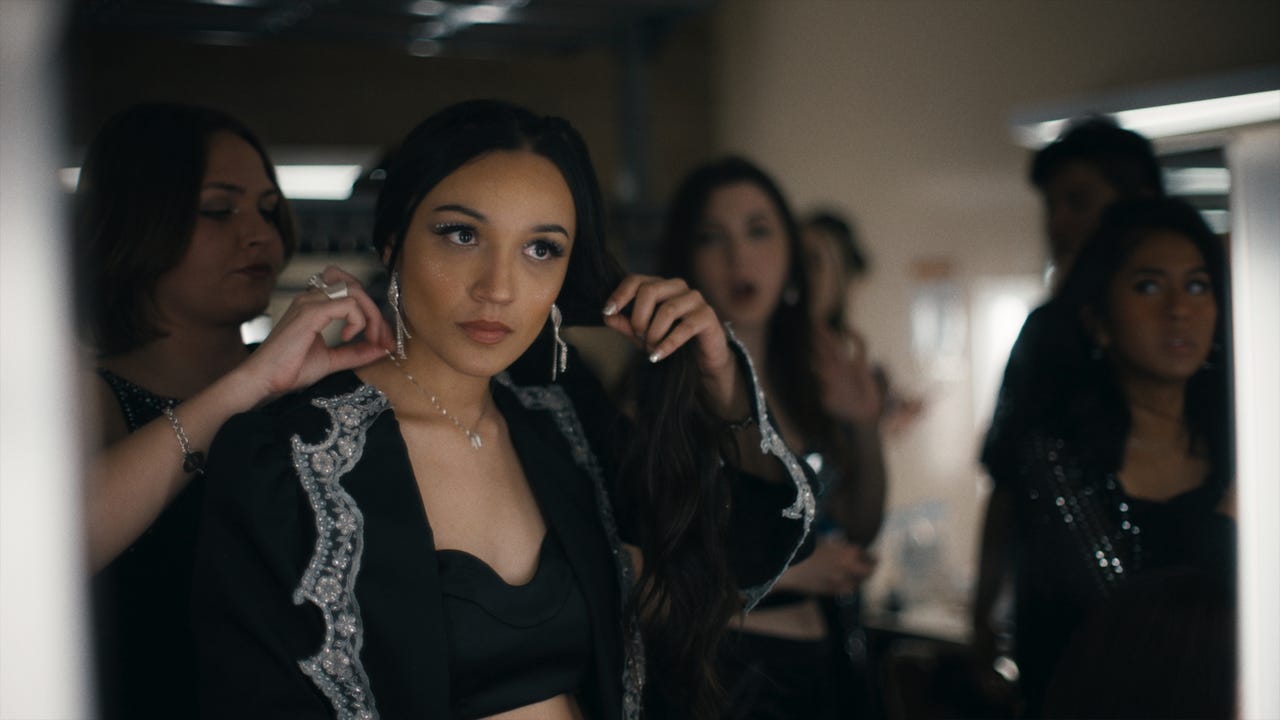A More Pitch Perfect Union
"Just Sing," a documentary about collegiate a cappella, hits the right notes—even for this Pitch Perfect hater. (Tribeca Film Festival Review)
If you’re starting to see more red carpets in front of downtown Manhattan movie theaters than usual, that’s because the Tribeca Film Festival has officially kicked off! Running from June 4–15, Tribeca has become known for premiering a lot of celebrity-driven films, with a particular focus on pop stars. (Skimming the catalogue, there are documentaries or visual albums for Billy Joel, Billy Idol, Ty Dolla $ign, Miley Cyrus, Boy George, Wizkid, Becky G… the list goes on.) Martin Scorsese and Robert de Niro are around too, having just celebrated the 30th Anniversary of Casino with a special screening.
But the festival also programs plenty of independent fare that may not garner as much buzz but worth a consideration in their own right. That’s the focus of my coverage of the Tribeca Film Festival, so expect some capsules and quick takes in the next couple weeks as I get through my writing and viewing backlog. To kick things off, here’s a full review of an inspiring documentary about one of the nation’s top collegiate a cappella groups!
Just Sing
Premiered June 6, with additional screenings on the 7th, 11th, and 13th. Seeking distribution.
This heartwarming documentary, following an elite collegiate a cappella group on their quest to win a championship, is both a showcase of vocal firepower and an urgent, hopeful call to defend diverse voices. As a concept, a cappella holds a utopian appeal: the blending of multiple voices into a unified whole, a community formed in song. But as a still-recovering Glee viewer and an avowed Pitch Perfect hater, I must admit that kicking off Just Sing with a beatbox-driven rendition of “The Edge of Glory” may have been a bit too New Directions for my taste. Fortunately, the subsequent performances and the personal stories of these singers won me over.
And I dare say that the members of the University of Southern California’s SoCal VoCals are more talented than those Glee kids, and their stories are compelling without the need for any Ryan Murphy-esque histrionics1. Since their founding in 1996, the VoCals have won five titles in the International Championship of Collegiate A Cappella (ICCA), the most ever by any team. It’s quite remarkable since every four years, due to students graduating, this crooning ship of Theseus completely turns over its membership. This iteration of the group is vying for their sixth title, and they’re a tight knit bunch. Most of them live in what’s essentially an a cappella frat house, and they probably don’t mind hearing their roommates sing in the shower.
The directors of Just Sing, Angelique Molina and Abraham Troen, were embedded with the SoCal VoCals during the 2022-2023 school year, and we get to know some of their subjects quite well. A more experimental film may have tried to weave together the experiences of all sixteen members of this group into a unified narrative, but Molina and Troen largely focus on four of them. From the mariachi singer with pop star ambitions to the conductor whose father contends with PTSD, the filmmakers successfully turn one of the nation’s top a cappella groups into underdogs. And in several ways, they are. Although they’re members of a lauded university team, the shape of their post-graduation careers is unknown. Most of them are a part of at least one minority group; in one of the film’s most affecting scenes, they share with each other their experiences with discrimination and their fears about life outside the university bubble. They hope to bring about change through their artistry, and these emotions fuel their performances.
The narrative is structured around the VoCals’ three major competitions, culminating with the grand finals in New York. (One wonders what the film would have looked like had the team failed to make it to that championship round.) The film delves into the minutiae of putting on an a cappella performance: determining the setlist, writing vocal arrangements, rehearsals, choreographing movement, and even raising funds by throwing a house party. (Just sing? If only.) The three songs in their competition setlist are all inspired choices, a mix of pop bangers and oldies, lovingly recontextualized2.
It’s awe-inspiring to see these performances come together into full-throated statements of resilience and defiance and joy, which makes it a bit disappointing that the film doesn’t do more to take after its subjects. The electronica score by James Righton is pleasing enough, but an entirely a cappella arrangement would have been a better thematic fit. It seems like the filmmakers want to keep the spotlight on their subjects by not injecting more of an authorial imprint. It follows that Just Sing more or less employs the present-day documentary standard of a linear narrative punctuated by character profiles, built on talking head interviews. As effective as this method may be—and it’s done well—it’s a missed opportunity to have crafted a more formally daring picture.
As impressive as the SoCal VoCals are as a collegiate group, the individual members aspire for more. As one member puts it, “I don’t want to be one of the people who says ‘I sang in college.’ I never want that to be a sentence that comes out of my mouth. Because that’s what the rest of my life is supposed to be for.” They have a hunger for fame, these young fellows, and you feel their fire and drive throughout the drama, laughter, and tears that they (along with the viewer) experience during their championship pursuit. Listen closely anytime they’re performing together, whether it’s at The Town Hall or sitting on couches in their home. Can you hear it, underneath the syncopated harmonies and grooving basslines? It’s the beats of their hearts saying: let them be your star.
The interviewees in this film take pains to differentiate the glee club puffery of Glee with the more studious approach of a cappella groups; according to them, Pitch Perfect is an accurate depiction of the collegiate competition circuit. But for a Glee comparison, the SoCal VoCals would be the slick Warblers with much fewer white men.
I wondered if licensing those songs, which I won’t reveal here, would have been prohibitively expensive for this film. But we only hear the a cappella cover versions, which falls under a much cheaper licensing scheme. Music copyrights are insanely convoluted, and if you really wanna geek out on intellectual property law, Sarah Jeong’s explainer in The Verge is the best I’ve seen at making sense of it all.






